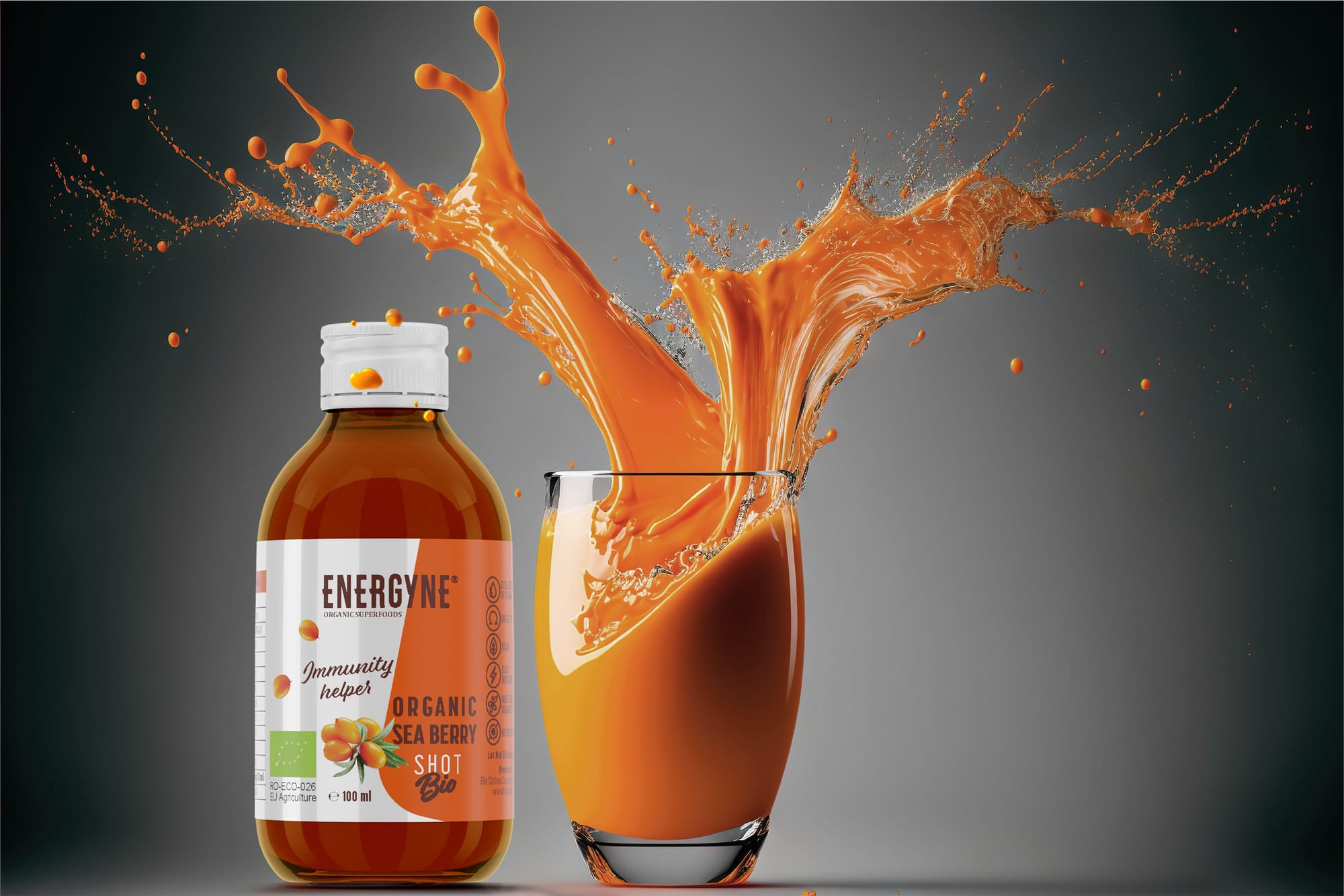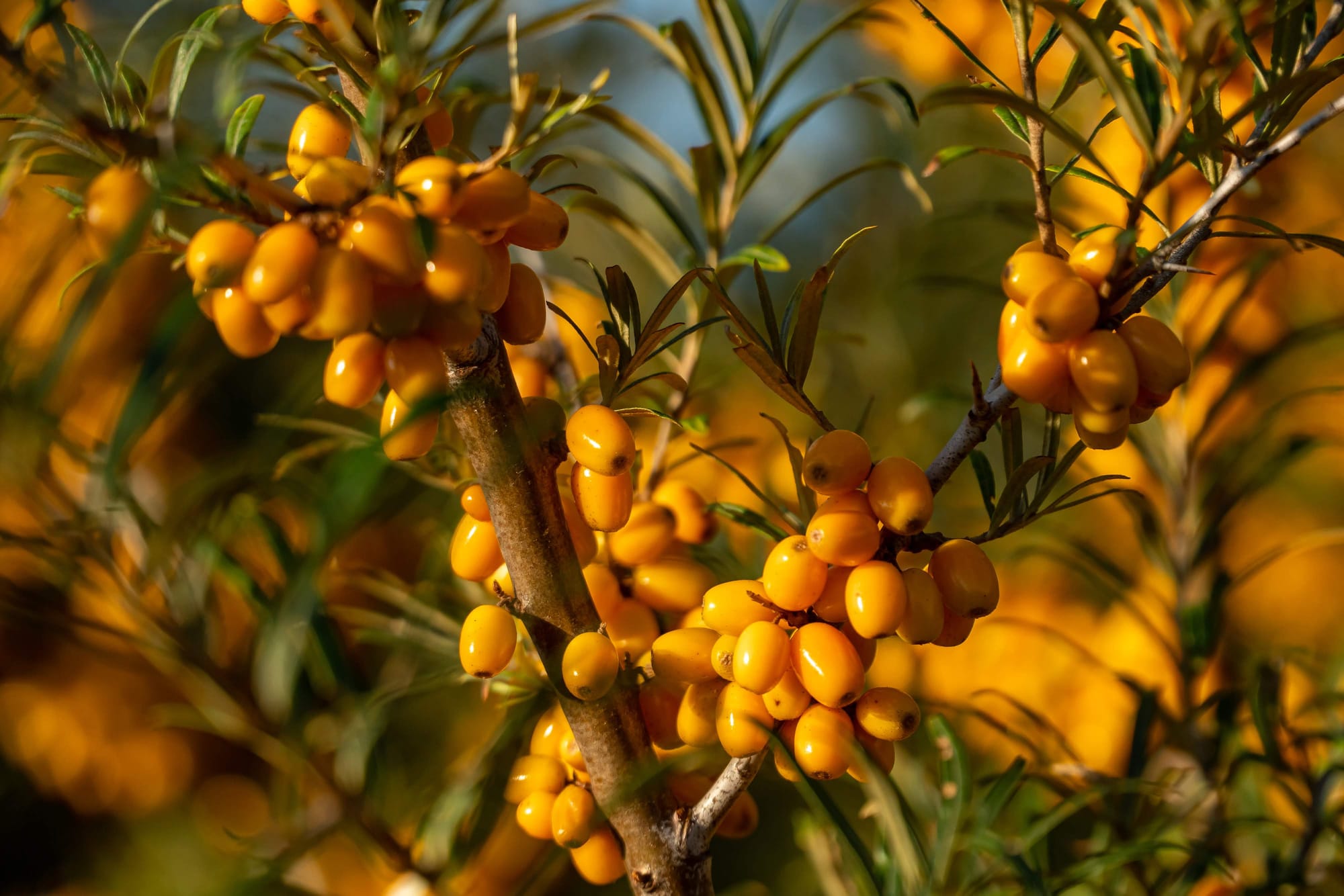Why Athletes Are Turning to Sea Buckthorn for Recovery

The Problem Every Aging Athlete Knows
Your drive hasn't diminished. Your goals are still ambitious. But your body needs more time between efforts.
If you're pushing through morning gym sessions, weekend races, or after-work training, you've felt it: recovery just isn't what it used to be. The determination is there, but your body's recovery systems are working against your timeline.
You've tried everything with mixed results—compression gear, ice baths, massage guns, expensive supplements. Here's something that actually works, and most athletes have never heard of it.
Explore the richest natural source of Omega-7
Enter Omega-7: The Recovery Nutrient You Can't Get Anywhere Else
Sea Buckthorn delivers 650mg of omega-7 per 100ml of pure juice—a rare fatty acid that acts like a recovery switch in your cells.
While you've heard about omega-3 for inflammation, omega-7 is different. It doesn't just reduce inflammation—it actively tells your body when to stop the inflammatory phase and start repairing.
How Omega-7 Actually Makes You Train Harder:
Think of inflammation like a construction site. When you work out hard, your body needs to:
- Tear down damaged tissue (inflammatory phase)
- Clear the debris (transition phase)
- Rebuild stronger (repair phase)
Most aging athletes get stuck in phase 1. Their bodies keep "tearing down" without efficiently switching to "rebuild mode." Result? Chronic soreness, slow recovery, declining performance.
Omega-7 is the foreman that says "enough demolition, start building."

The Cellular Recovery Advantage:
Inflammation Resolution Support: Omega-7 activates specialized pathways that help transition from inflammatory to repair processes, supporting the body's natural recovery cycle.
Muscle Membrane Integration: Omega-7 incorporates into cell membranes, improving their structural integrity and resilience to exercise-induced oxidative stress.
Metabolic Efficiency: Omega-7 enhances fat oxidation and insulin sensitivity, supporting efficient energy utilization during prolonged training sessions.
Vascular Function: Omega-7 improves endothelial function and blood vessel flexibility, supporting nutrient delivery and metabolic waste removal during exercise.
Supercharge your recovery!
Simple Protocols for Real Results
The Warrior Protocol:
50-100ml pure Sea Buckthorn daily
- Omega-7 dose: 325-650mg daily
- Timing: With meals containing fat for better absorption
- Purpose: Builds baseline omega-7 levels for consistent recovery
- Best for: General fitness, weekend warriors, recovery support
The Lifestyle Protocol:
125ml mixed Sea Buckthorn daily
- Omega-7 dose: 163-390mg daily (25-30% pure juice content)
- Timing: Anytime - enhanced taste for daily enjoyment
- Purpose: Convenient omega-7 support with natural fruit flavors
- Best for: Daily wellness, those who prefer milder taste, consistency
The Athlete Protocol:
200ml pure Sea Buckthorn daily
- Omega-7 dose: 1,300mg daily
- Timing: Split dose - with fatty meals or post-workout
- Purpose: Maximum omega-7 saturation for enhanced recovery capacity
- Best for: Serious training, competition preparation, intensive blocks
Timing Notes:
With fat: Omega-7 is fat-soluble - absorption may be enhanced when taken with meals containing healthy fats
Post-workout: Enhanced blood flow may improve uptake during the recovery window
Consistency matters most: Daily consumption builds cumulative benefits over weeks

Why Plant-Based Omega-7 Matters
Most omega-7 supplements are either fish-derived oils or synthetic compounds in capsules. Sea Buckthorn provides the only sustainable, vegan source of natural omega-7 in meaningful concentrations.
The Plant-Based Advantage:
Food matrix delivery: Whole fruit nutrition vs. isolated extracted compounds
Complete nutrition: Omega-7 + omega-9 + vitamin C + antioxidants in natural ratios
No processing concerns: Cold-pressed fruit vs. chemical extraction or marine oil refining
Sustainable sourcing: Mountain-grown berries vs. marine fishing or chemical synthesis
Vegan-friendly: Plant-based vs. fish-derived omega-7 supplements
